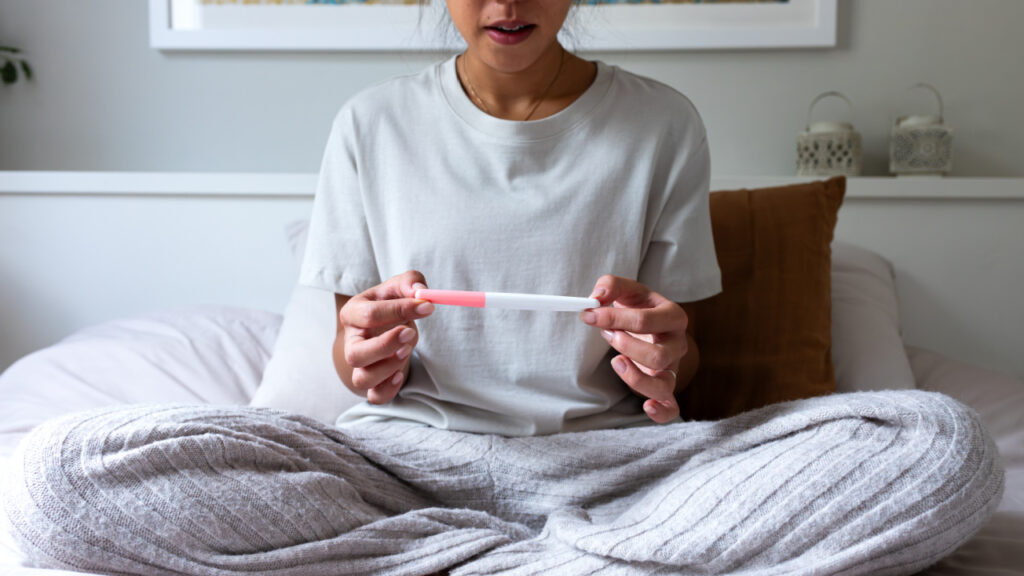
If You Could, Would You Delay Menopause? Researchers Believe It’s the Key to Living Longer
Our mothers and grandmothers lived it. Now, we wonder if it’s climate change or if we’re having our first hot flash. One way or another, menopause has always been a ticking clock in many women’s lives after the age of 30.
Now, researchers are exploring the possibility of delaying menopause. Moreover, they believe that achieving this could be the key to longevity.
For Renee Wegrzyn, director of the Advanced Health Research Projects Agency, the ovaries are “the only organ in humans that we just accept will fail one day.”
“It’s actually kind of wild that we all just accept that,” she told the New York Times. Wegrzyn is part of First Lady Jill Biden’s women’s health initiative. Along with other researchers, the White House task force has realized that the female reproductive system is much more than “just a baby factory.”
When science finally pays attention
For some time now, researchers have finally been paying attention to women’s health. After years of designing drugs and treatments based exclusively on the male body, science has finally realized facts that, on closer inspection, are pretty logical.
The ovaries, for example, seem to be connected to virtually every aspect of a woman’s health. As the Times explained, these organs abruptly stop performing their primary function in middle age. “Once that happens, a woman enters menopause, which accelerates her aging and the decline of other organ systems, like the heart and the brain,” the media reports.
Worse, although women, on average, live longer than men, “they spend more time living with diseases or disabilities.”
Ovaries, menopause, and aging
Dr. Wergrzyn and the White House’s new initiative will provide a $100 million budget to study menopause and longevity.
“If you don’t think about ovarian function during aging,” said Jennifer Garrison, an assistant professor at the Buck Institute for Research on Aging, “then you’re kind of missing the boat.”
But how does it work?
The ovaries function like the control center of “a complex network of signaling in a woman’s body,” Dr. Garrison said. The ovaries communicate with and influence virtually every other organ through hormones like estrogen, progesterone, and other chemicals.
Ironically, scientists still don’t know exactly how the ovaries do it. They do know that when they stop functioning normally, “all sorts of problems” arise. These include polycystic ovaries in young women. However, as a woman’s eggs become depleted and menopause arrives, “the ovaries’ chemical communications seem to go quiet.”
That’s when the risks of dementia, cardiovascular disease, osteoporosis, and other age-related diseases increase. “The earlier a woman enters this life phase, the higher her risk for developing those conditions, and the shorter her life is likely to be,” the Times explains. “And in women who enter menopause prematurely because their ovaries are surgically removed, the risks for chronic conditions are greater still.”
For Latinas, the situation is even more complicated
In the United States, 17% of women aged 45-54 identify as Latina. The age at natural menopause among Latinas in the country averages approximately 51 years. Although this is no different from non-Latina white women, our community experiences the consequences differently.
According to a study from The University of North Carolina at Chapel Hill, middle-aged Latinas report greater vaginal dryness and sexual problems than non-Latina white women. “Latinas are a heterogeneous group with differing nationalities, immigration histories, religion, cultural beliefs, education, and level of acculturation,” wrote Yamnia I. Cortés, author of the study. “These factors have a profound effect on the health and lifestyle of Latinas.”
The study suggests that Latinas, particularly those of lower socioeconomic status and lower social support, experience more adverse changes in multiple health unions during menopause.
Other research agrees that menopause is indeed different for women of color
According to the Study of Women’s Health Across the Nation (SWAN), more black and Latina women report experiencing vasomotor symptoms (hot flashes and night sweats) than white women. Among women reporting vasomotor symptoms, white women experience hot flashes for about 6.5 years, while for Latinas, it is 8.9 years, and for black women, it is 10 years.
For Dr. Nanette Santoro of the University of Colorado School of Medicine, the causes are the same: lifestyle, socioeconomic status, and other stressors such as systemic racism.
Therefore, if we continue to study the ovaries and women’s health in general, we may not only find the key to longevity. We may finally understand how the many layers of inequality impact the quality of life for women of color in the third stage of life.




